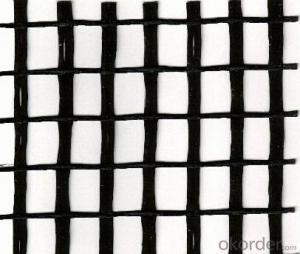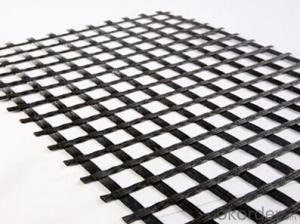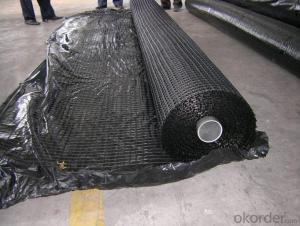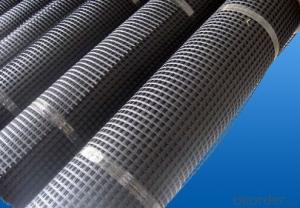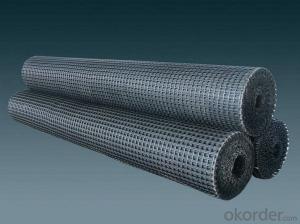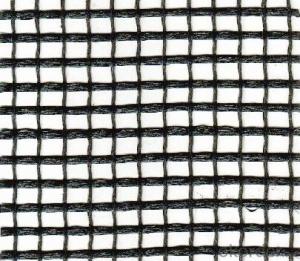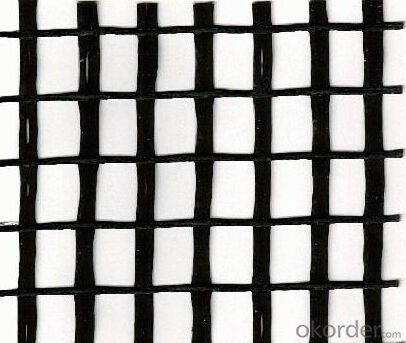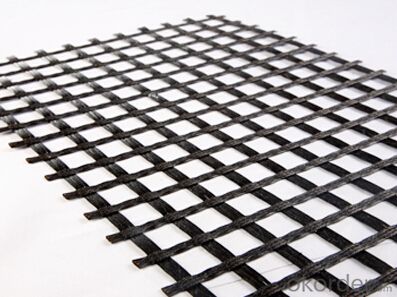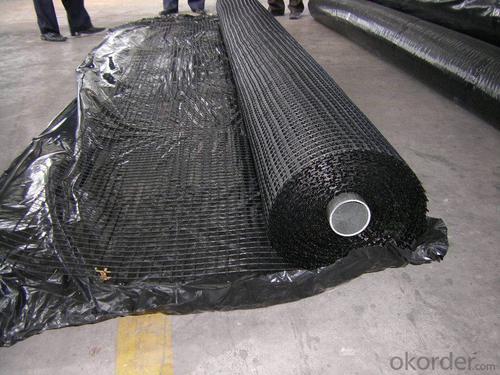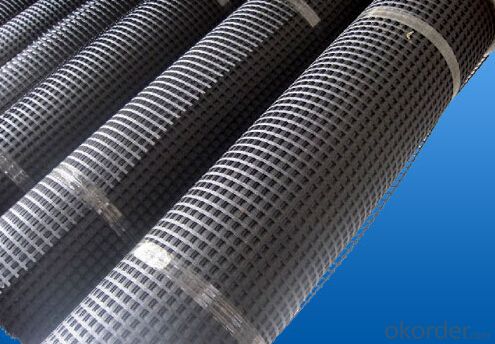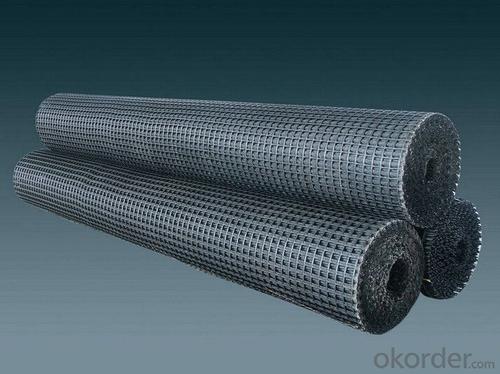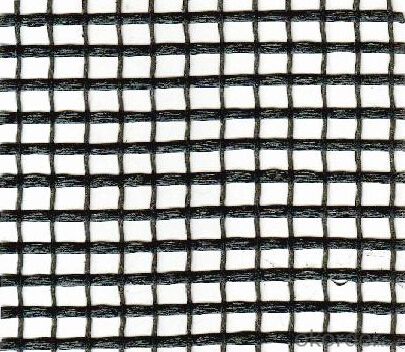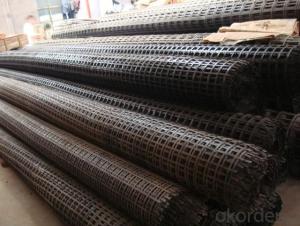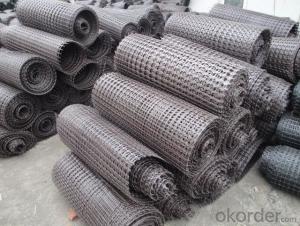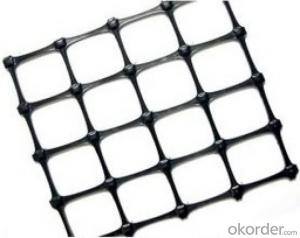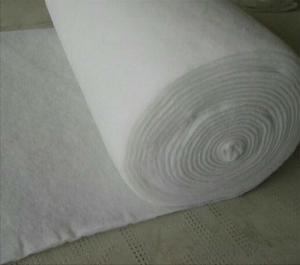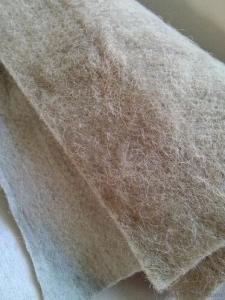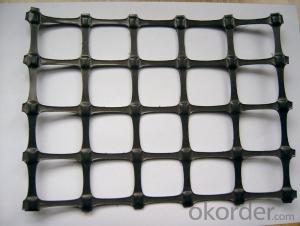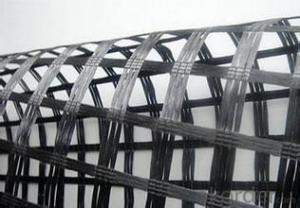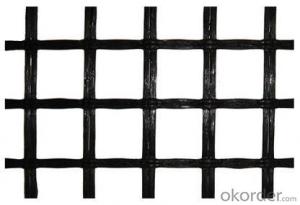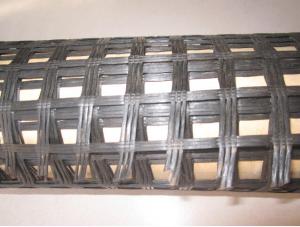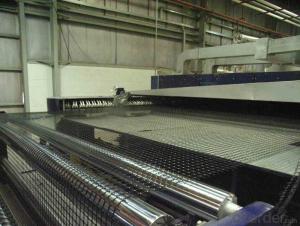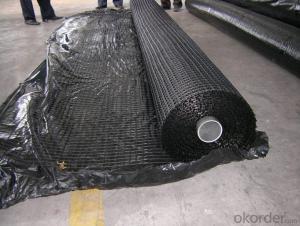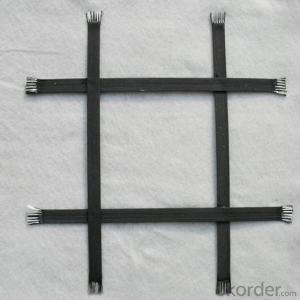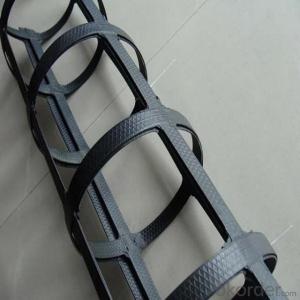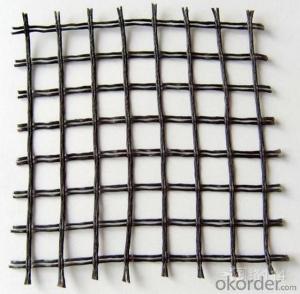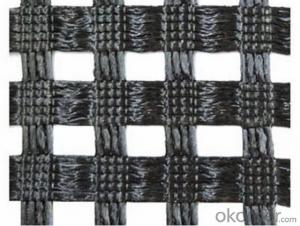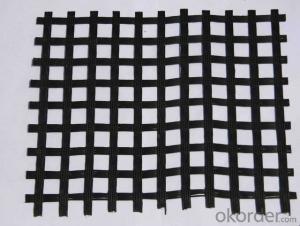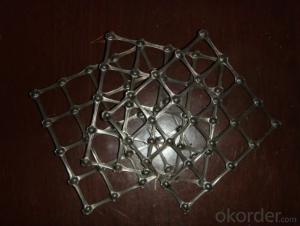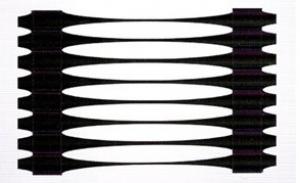Bitumen Coated Fiberglass Uniaxial and Biaxial Geogrids
- Loading Port:
- Qingdao
- Payment Terms:
- TT OR LC
- Min Order Qty:
- 50000 m²
- Supply Capability:
- 2000000 m²/month
OKorder Service Pledge
OKorder Financial Service
You Might Also Like
Fiberglass Geogrid Manufacturer with Bitumen Coated
Description Of Fiberglass Geogrid Manufacturer with Bitumen Coated:
Fiberglass geogrid is a kind of new favorable earthwork base material to strengthen the road surface and roadbed.This product is made by weaving and covering fiberglass filament. It is featured by high vertical and horizontal tensile strength, low unit extension, high flexibility, and favorable high and low temperature resistance.The products after surface covering own the favorable property of alkali resistance and aging resistance. It is used widely to increase the asphalt road surface, concrete road and roadbed (both soft and hard road surfaces). Compared with the traditional road surface, it reduces the cost, prolong the service life, and avoid the reflection road crackle. This product is also used to strengthen the soft land, such as railway, airport, irrigation work, and dyke, etc, and the roadbed.
Main Features of Fiberglass Geogrid Manufacturer with Bitumen Coated:
1.High tensile strength, low elongation.
2.No long-term creep: the product can keep for a long time performance.
3.Thermal stability: fiber glass melting temperature above 1000 ℃.
4.The compatibility with asphalt.
5.Physical and chemical stability.
Specifications of Fiberglass Geogrid Manufacturer with Bitumen Coated:
Tensile Strength (KN) | Warp | >30 | >50 | >60 | >80 | >100 | >120 | >150 | >200 |
Weft | >30 | >50 | >60 | >80 | >100 | >120 | >150 | >120 | |
Elongation(%) | <4< p=""> | <4< p=""> | <4< p=""> | <4< p=""> | <4< p=""> | <4< p=""> | <4< p=""> | <4< p=""> | |
Mesh Size(mm) | 25.4*25.4 | 25.4*25.4 | 25.4*25.4 | 25.4*25.4 | 25.4*25.4 | 25.4*25.4 | 25.4*25.4 | 25.4*25.4 | |
Elastic Modulus | 76 | 76 | 76 | 76 | 76 | 76 | 76 | 76 | |
Width(m) | 1~6 | 1~6 | 1~6 | 1~6 | 1~6 | 1~6 | 1~6 | 1~6 | |
Length(m) | 50~300 | 50~300 | 50~300 | 50~300 | 50~300 | 50~300 | 50~300 | 50~300 | |
Temperature Resistant(℃) | -100~280 | -100~280 | -100~280 | -100~280 | -100~280 | -100~280 | -100~280 | -100~280 | |
Resin Content (%) | 18~20 | 18~20 | 18~20 | 18~20 | 18~20 | 18~20 | 18~20 | 18~20 | |
Glue Type | Bitumen PVC SBR soakage | Bitumen PVC SBR soakage | Bitumen PVC SBR soakage | Bitumen PVC SBR soakage | Bitumen PVC SBR soakage | Bitumen PVC SBR soakage | Bitumen PVC SBR soakage | Bitumen PVC SBR soakage | |
Applications of Fiberglass Geogrid Manufacturer with Bitumen Coated:
Strengthen bitumen concrete roadway and reduce and prevent various kinds of reflection gaps on roadway.
1. Maintenance of old asphalt road reinforcement of asphalt pavement.
2. Converting old cement concrete road into composite road.
3. Restraining reflection cracking caused by block shrinkage.
4. Preventing and controlling the cracking caused by new and old combination and uneven settlement.
5. Road extension.
6. Reinforcement of soft soil foundation and overall strength of roadbed.
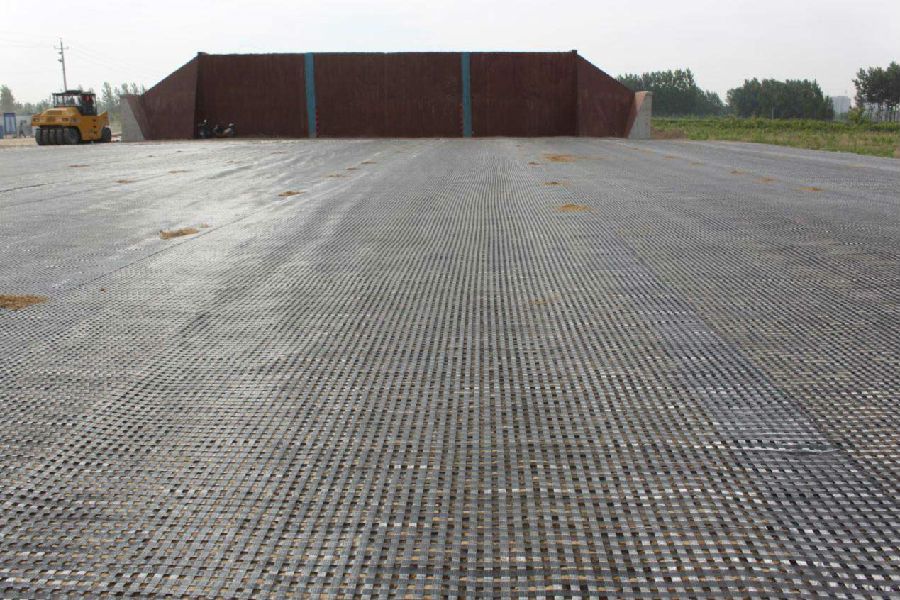
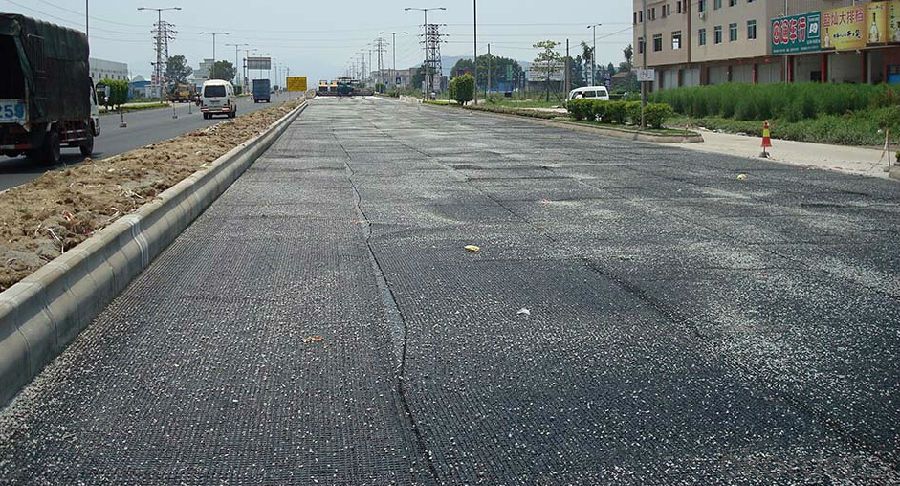
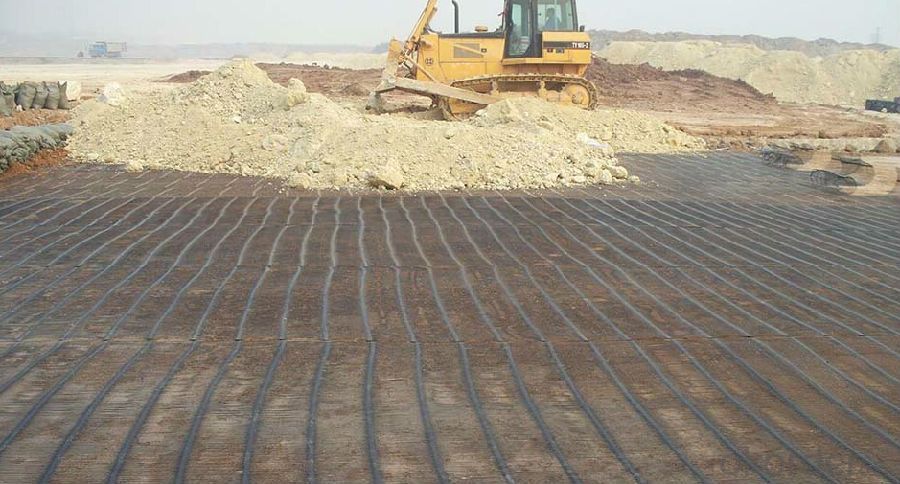
IMages of Fiberglass Geogrid Manufacturer with Bitumen Coated:
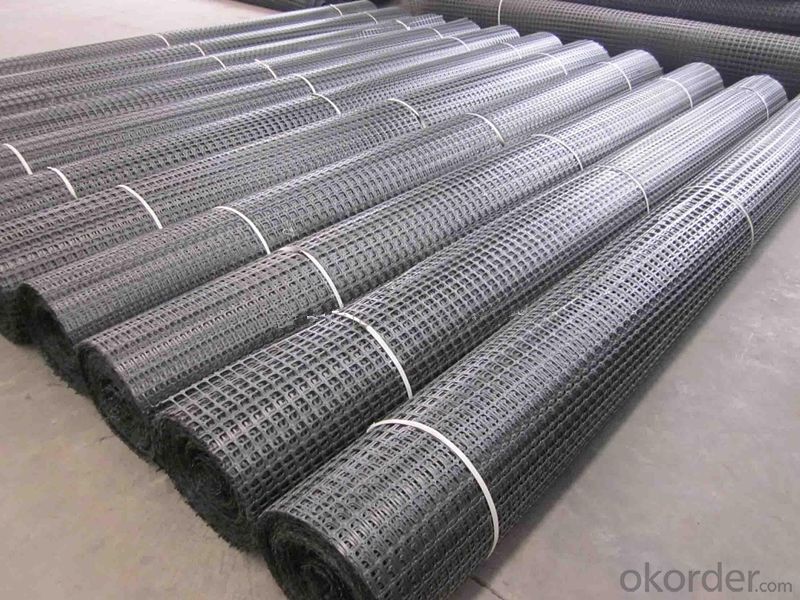
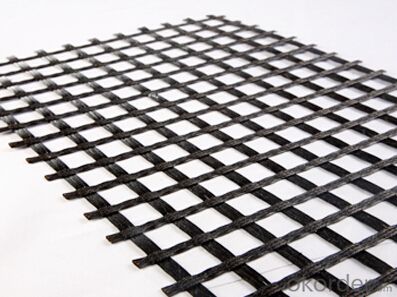
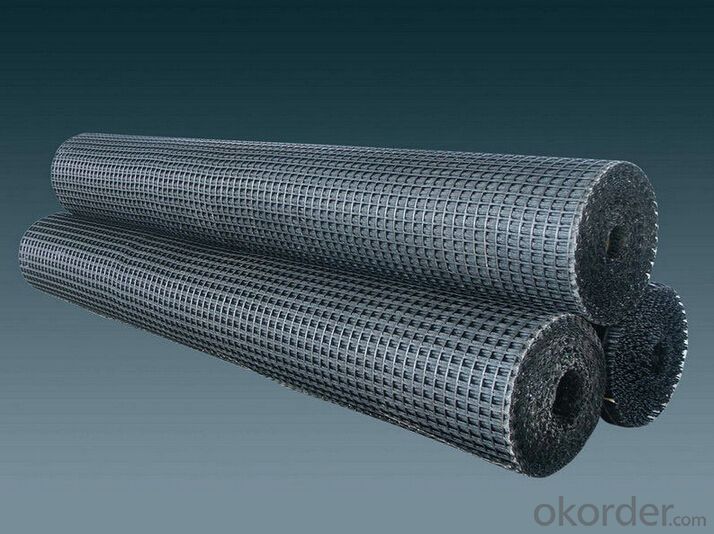
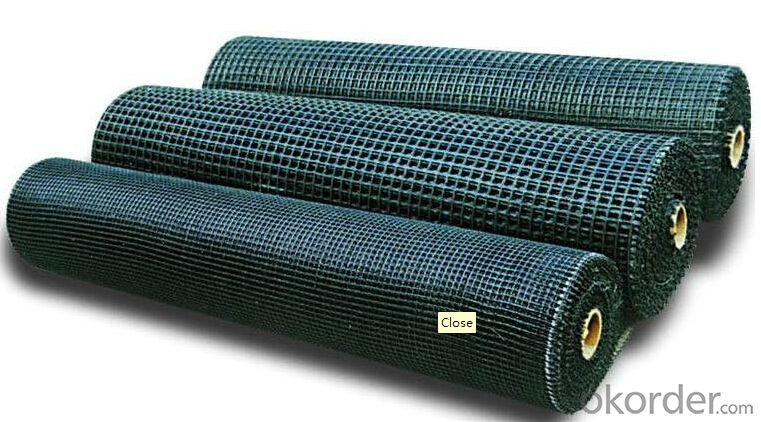
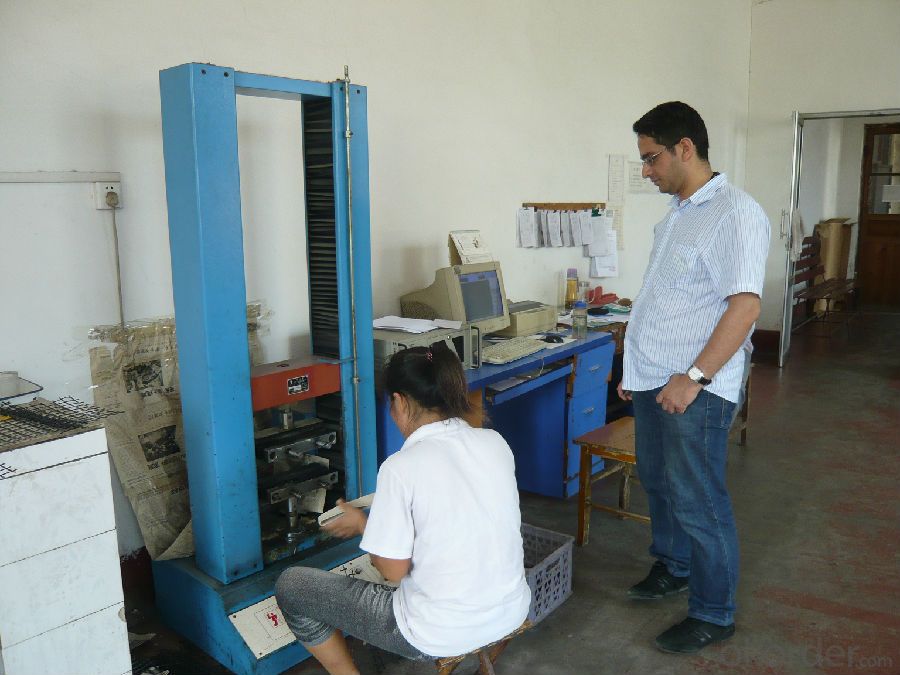
FAQ of Fiberglass Geogrid Manufacturer with Bitumen Coated:
1. What are we supplying?
We are specialized in producing Geosynthetic materials, like Geogrid Series, HDPE Geocell, Geonet, Geotextile, Geomat, Tri Denmensional Composite Grainage Geonet, and Geomembrane Series.
.
2. How Many years experience do we have?
We have been exported to more than 20 countries in the past 15 years.
3. How long do we usually reply your request?
We always reply our customer within 24 hours.
- Q: How do geogrids improve the stability of levees?
- Geogrids improve the stability of levees by providing reinforcement and increased tensile strength to the soil. These grid-like structures are placed within the levee's soil layers, creating a stable and cohesive system. The geogrids distribute the applied loads more evenly and prevent soil erosion, enhancing the overall stability and strength of the levee structure.
- Q: How do geogrids help in reducing construction labor requirements?
- Geogrids help in reducing construction labor requirements by providing stability and reinforcement to soil, allowing for the use of thinner layers of fill material. This reduces the need for extensive excavation and material placement, thus minimizing the amount of manual labor involved in the construction process.
- Q: How are geogrids connected to the surrounding soil?
- Geogrids are connected to the surrounding soil through a mechanism called soil interlocking. The geogrids have open spaces or apertures that allow the soil particles to penetrate and interlock with the geogrid structure. This interlocking creates a strong bond between the geogrid and the soil, providing reinforcement and stability to the soil structure.
- Q: What are the types of Geogrid
- There are many types of geogrid is about tgsg / convex node tgsg / whole tgsg / glass fiber geogrid
- Q: How do geogrids improve the performance of geosynthetic-reinforced embankments?
- Geogrids improve the performance of geosynthetic-reinforced embankments by providing reinforcement and stability to the soil. They enhance the load-bearing capacity of the embankment, prevent soil erosion, and distribute the applied load more evenly. Additionally, geogrids reduce settlement and increase the overall lifespan of the embankment, making it more durable and reliable.
- Q: Are there any specific maintenance requirements for geogrids?
- Yes, geogrids typically require regular inspection to ensure proper functioning and longevity. This may include checking for damage or deterioration, removing any debris or vegetation, and ensuring proper alignment and tension. Additionally, geogrids should be protected from excessive UV exposure and harsh environmental conditions to maintain their effectiveness.
- Q: What are the factors that affect the creep behavior of geogrids?
- There are several factors that can affect the creep behavior of geogrids, including the type and quality of the geogrid material, the magnitude and duration of applied load, environmental conditions such as temperature and moisture, and the installation and confinement methods used. These factors can influence the long-term deformation and performance of geogrids, making it crucial to consider them in design and engineering applications.
- Q: How do geogrids enhance the stability of landfill slopes?
- Geogrids enhance the stability of landfill slopes by creating a reinforced structure that prevents soil erosion and slope failures. They provide additional tensile strength to the soil, distribute lateral loads more evenly, and increase overall slope stability. Additionally, geogrids help to control soil settlement and improve drainage, reducing the risk of landslides and ensuring long-term stability of the landfill slopes.
- Q: Are geogrids suitable for use in contaminated soil conditions?
- Yes, geogrids are suitable for use in contaminated soil conditions. Geogrids are made from high-strength materials that are resistant to chemical degradation, making them effective in stabilizing and reinforcing soil in contaminated areas. They provide strength and stability to the soil, preventing erosion and improving load-bearing capacity, even in contaminated soil conditions.
- Q: What are the installation guidelines for geogrids?
- The installation guidelines for geogrids typically include steps such as preparing the subgrade, ensuring proper compaction, securely anchoring the geogrid, and properly overlapping and connecting multiple rolls. Additionally, the guidelines may outline specific requirements for site preparation, equipment, and quality control measures to ensure a successful installation of geogrids.
Send your message to us
Bitumen Coated Fiberglass Uniaxial and Biaxial Geogrids
- Loading Port:
- Qingdao
- Payment Terms:
- TT OR LC
- Min Order Qty:
- 50000 m²
- Supply Capability:
- 2000000 m²/month
OKorder Service Pledge
OKorder Financial Service
Similar products
Hot products
Hot Searches
Related keywords
